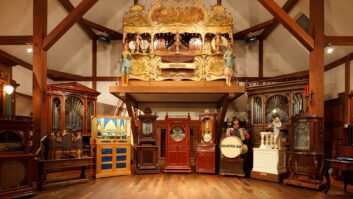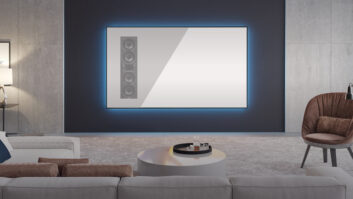Digital technology has permeated high-end audio on the processor and DAC fronts, but manufacturers are divided on the question of the digital amplifier.
Meridian will introduce its first digital amplifier product at the 2007 International CES. The $8,000 G95 is also the company’s first all-in-one product, packing a DVD/CD drive, AM/FM tuner, five channels of audio and surround processing. The product is an answer to custom installers’ request for a space-saving solution.
“We’re seeing a lot of multipurpose family rooms where space is at a premium, said sales VP Norm Steinke. “We wanted to do an all-in-one product for awhile, and the digital amplifiers allowed for it,” Steinke said. “Otherwise we would run into heat problems. With the new digital amplification technology, we’re able to put all the amplifiers in the same chassis.”
Cary Audio Designs offers two digital amps in its Concept Series, the company’s high-end entry-level product line. The CAA 1 stereo power amp and CAI 1 integrated amp offer “excellent power with greater efficiency and less power consumption,” said Cary’s chief financial officer Billy Wright. “As more and more of the world relies on digital technologies,” Wright said, “manufacturers need to adjust to the market. We believe that everything has its place. The digital amplifiers offer an excellent solution for different applications — multiroom audio, subwoofer designs and power amplifiers.”
Conrad-Johnson has yet to be convinced that digital amps are the way to go. “I cast an eye on it from time to time,” said president Bill Conrad, “but looking into aspects of efficiency is not particularly exciting to me at the cost of doing things I’m not enamored of when it comes to switching. You get a signal that’s full on or full off and then smooth it to generate an analog signal,” he said. “That’s not a good way to go unless your goal is to generate very little heat, and for us, that’s not important at all.”
Lexicon, for one, has placed the digital amp issue on hold. “If they can meet our goals for sound quality, performance and reliability, then we will go that way,” said sales and marketing VP Andy Clark. “I believe that the time is coming when digital amplifiers will overtake analog amplifiers in this regard, but for today, the analog designs are still king.”













